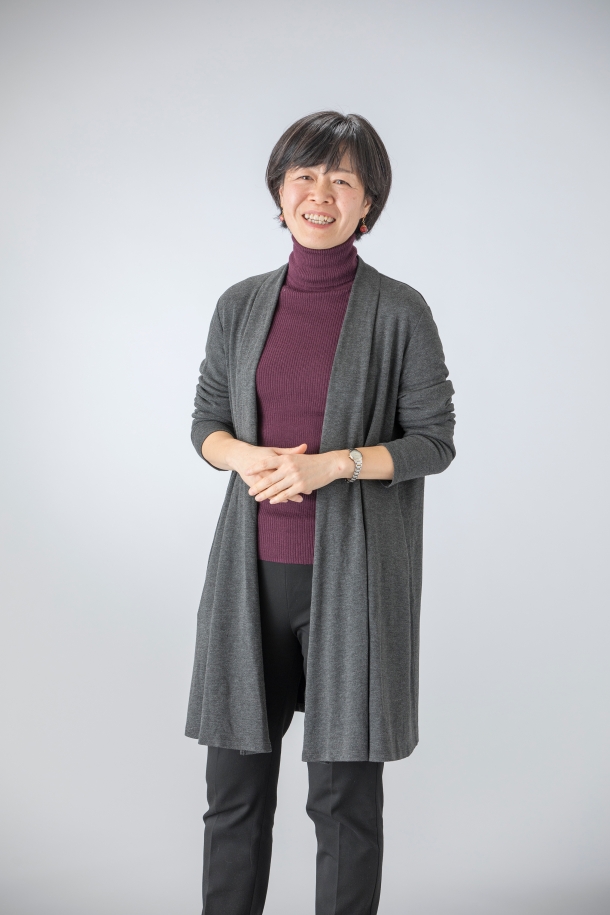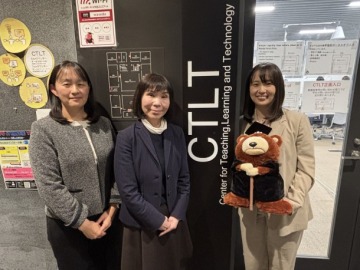Spring Semester 2022 Waseda University Presidential Teaching Award
Subject:Global Sociology (E)
Gracia Liu FARRER
International Sociology (E), a course offered by the Graduate School of Asia-Pacific Studies (GSAPS), actively adopted the flipped classroom method to encourage students’ interactive participation. The shift to an online format was the impetus for adopting the flipped classroom, which encourages students to prepare in advance by having students watch the recording of the lecture portion before the class and devoting time to discussion during class. Students responded to these tactics positively.
Flexible teaching methods that make efficient use of online resources, covering everything from theory to familiar phenomena
This was an 8-week intensive course of two consecutive classes each week. 14 students enrolled in this course in the spring semester of AY2022. The course was taught in English. Although there were more than 10 students for whom English was not their first language, they were highly competent in English and showed active participation. As Professor Liu-Farrer explains, “My objective for this class is to teach classical as well as contemporary sociological theories to students in an interdisciplinary international relations program. I told the students from the very beginning of the class that I will require them to read classical literature that had been translated from multiple languages into English, so I expected them to have a substantial command of English.”
Professor Liu-Farrer has been teaching at Waseda University for more than 10 years, and she observes that her teaching style has changed over the years. While she still teaches theories, she has introduced new methods of classroom management since the COVID pandemic. “I studied at a graduate school in the U.S., where the focus was on discussion. I wanted to teach social theory to our students here as well so that students will have a foundation. However, it might have been difficult for them to grasp the theories and concepts without proper lectures. When the pandemic began and all classes were moved online, my daughter was in high school and attending an international school, and I was impressed by the great efforts of the teachers there had made to offer online classes,” reflects Professor Liu-Farrer. Her daughter’s school had adopted a “flipped classroom”, and that was the catalyst for Professor Liu-Farrer’s change in teaching style.
“In the beginning, I really couldn’t imagine teaching a three-hour class online. I thought it would be too hard, too dry, too theoretical for students to follow. So, I thought it might be better to record the lecture portion. The students will watch the recordings before the class, and during class we will spend more time on discussions.” The shift to online classes has made this style of teaching possible.
The flipped classroom, where lectures are delivered in advance and class time is used for discussions, received positive feedbacks from the students
During the course of this class, several students were still abroad and could only participate online. As a result, Professor Liu-Farrer conducted this class as a “hi-flex class,” a flexible format in which the professor conducts the class from the classroom and the students can come to the classroom or participate online. The first 60 minutes of the class was on-demand: a PowerPoint lecture video with audio was distributed ahead of the time, and students were to watch this video in advance and submit their comments through Moodle. These comments were graded as class participation. Professor Liu-Farrer would read through the comments before class met, which was comprised of two hours of discussion. “At first, it took me quite some time to prepare, sometimes even two to three days to prepare a 60-minute lecture,” she reflected. “I also had to be careful about the microphone and the settings of the computer. But fortunately, the flipped classroom was well received by the students. I found that this way the students could understand the theory better.”
Reading students’ comments in advance was also a good way for Professor Liu-Farrer to see what students had to say. “Student participation is essential to the success of a class. I believe that a hard, dry class is meaningless for the study of theory if it does not connect to observations in real life. For example, one might think, what does Weber’s theory from 120 years ago have to do with today? But discussing it from one’s own understanding makes an impression on oneself.”
Synergy between the professor’s passionate attitude and students’ enthusiasm
In the responses to the student course evaluation, the evaluation score for “Overall, this class was meaningful” was very high, at 5.9 out of 6 points. One of the students commented in the free response section that “It is not easy to conduct both online and in-person classes. Professor Liu-Farrer took care to ensure that all students could participate in the discussions.” This indicates that the interactive class was well received by the students. “I myself was surprised that this course won the award. I thought it was a boring class dealing with difficult theories. Student participation is absolutely necessary for a good class. Students enjoy it when they make the effort to participate,” says Professor Liu-Farrer.
In order to encourage student participation, Professor Liu-Farrer incorporates topics that are familiar to the students’ lives when dealing with classical theories. For example, Professor Liu-Farrer incorporated discussions on current topics such as data on masks and smartphone tracing apps during the pandemic. “The same class preparation does not necessarily result in the same class content, and student participation is absolutely necessary. I believe that this time, we were able to create some wonderful synergy thanks to the students’ willingness to participate.”
Professor Liu-Farrer says that she has been described by students as a “passionate teacher”. “I like sharing my studies with my students. As I’ve gotten older, I’ve become more willing to put in serious effort. People tend to want to see good results from what they put their energy and effort into.”
Professor Liu-Farrer also encourages students to “abandon the common sense”. “We have in the same class students from many different countries, and each country has its own propaganda. So, I always say to students: ‘be skeptical’.”





